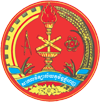Current Projects
| No | Project Name | Description | Co-Funded by | Status |
|---|---|---|---|---|
| 1 | 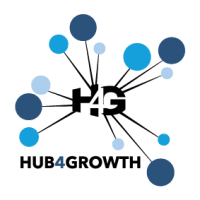 Hub4Growth |
Cooperation between university
and industry plays a crucial role for skill development, employment opportunities for graduate,
innovation and technology transfer, and the promotion of entrepreneurship. The importance of cooperation
between HEIs and their socio-economic environment is being addressed in Europe within the current 'Europe
2020 Strategy'.
Our University-Industry Cooperation Center (UICC) of the RUPP have been supported with Capacity Building (CBHE) under Hub4Growth Project of Erasmus + with upgreading staffs' capacity and improving our needed equipments that help foster the work regarding the cooperation between our University with Industries. Thanks to Erasmus+ for the funding us under Hub4Growth Project. Read more The whole project detail: Go to hub4growth |
 Erasmus+ Programme, European Union |
Final Stage |
| 2 |
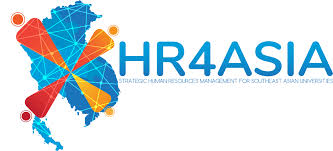 HR4Asia |
HR unit is progressed under Personnel Office to manage all staffs including full-time, part-time,
official, and contracted staffs, and also evaluate staffs’ performance for promotion once staffs applied
for. Human Resource Management is very important of each and every organization. Without Human Resource
management and with only technical staffs, the outcomes/ result of the whole organization would not be
satisfied enough. The Human Resource Management has to be in place in order to achieve maximizing output
from effective and efficient HRM.
Personnel Office of the RUPP have been supported with Capacity Building (CBHE) under HR4Asia project of Erasmus+ to our officers, with upgreading staffs' capacity and improving our needede quipments that help foster the work regarding HRM. Thanks to Erasmus+ for the funding under HR4Asia Project. Read more The whole project detail: Go to hrm.ruppproject.com |
 Erasmus+ Programme, European Union |
Final Stage |
| 3 | 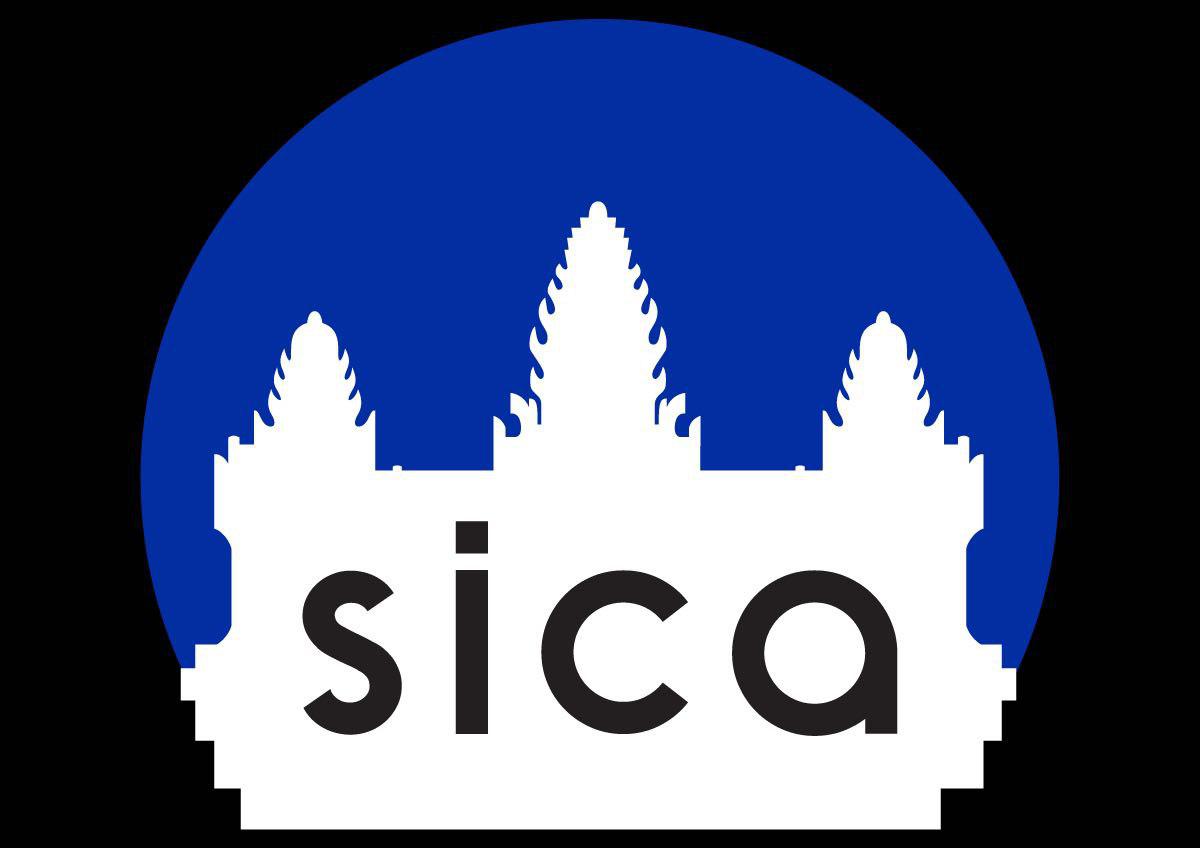 Sica |
We have applied
this SICA project since it is to contribute to Cambodian Higher Education Vision 2030 through the
improvement of internal Quality Assurance in Cambodian HEIs, Specially, it aims at building up a
technical capacity and establishing an institutional quality assurance culture in RUPP. Our Quality Assurance Center (QAC) of the RUPP have been supported with Capacity Building (CBHE) under SICA Project of Erasmus + with upgrading staffs' capacity and improving our needed equipment that help foster the work regarding the strengthening the Quality Assurance at our University. Thanks to Erasmus+ for the funding us under SICA Project. Read more The whole project detail: Go to sica-project.eu |
 Erasmus+ Programme, European Union |
On going |
| 4 |
 GEReSHCAM |
The European project GEReSH-CAM aims to support Cambodian academics in shaping a policy of research and
innovation in the social sciences and humanities in Cambodia.
GEReSH-CAM project covers a period of three years, from october 2016 to October 2019 and is supported by
the Erasmus + program of the European Union.
It is a capacity building project implemented in the framework of Erasmus + Key Action Cooperation for
innovation and the exchange of good practices.
The primary objective of GEReSH-CAM project is to support the Kingdom of Cambodia (partner country) in
addressing the problems encountered by its higher education system, particularly the problems of quality,
relevance, management and governance.
The whole project detail: Go to geresh-cam.eu |
 Erasmus+ Programme, European Union |
Final Stage |
| 5 | DEEM |
The project aims to integrate futures and sustainability thinking, promote innovation and
entrepreneurship, build public-private partnerships and include innovative teaching methods. Associate
partners from the national governments and civil society provide guidance on most relevant challenges and
skills needed.
The wider objective is to ensure that the partner HEIs are able to respond to the capacity and employment needs of sustainable energy development in Cambodia, Laos and Myanmar. The objective will have a direct link to strengthening the integration of sustainable energy goals into national level energy policies, provide qualified energy experts into the local, national and regional labor markets and foster greater collaboration between the traditionally siloed public and private sectors and increase regional level cooperation and mobility in research, entrepreneurship and innovation. The possible direct short term impacts include modernisation and internationalisation of HEIs, and in long term the project will contribute to sustainable energy policies, mitigation of climate GHG emissions and climate change, energy security and better access to energy for all. The whole project detail: Go to erasmus-deem.fi |
 Erasmus+ Programme, European Union |
Completed |
| 6 |
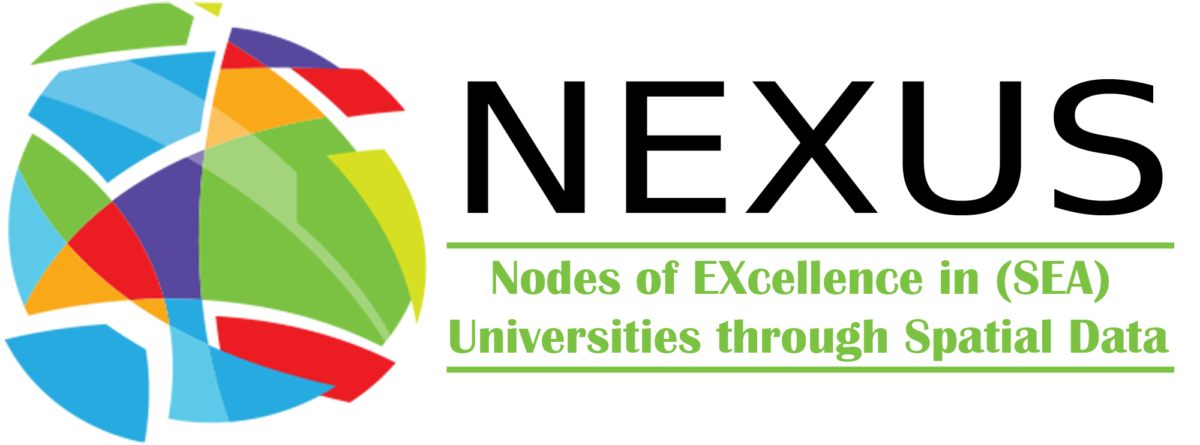 NEXUS |
The Nodes of Excellence in (SEA) Universities through Spatial Data NEXUS project is an Erasmus + CBHE
(Capacity Building in High Education) proposal whose main aim is to enhance the research capacities of
HEIs in the southeast Asian region, by strengthening relationships between Education, Research and
Innovation in GIS, SDI and remote sensing, for applications that are related to environment, agriculture
and situations of emergency. The project will develop a common nexus between various actors of research
and innovation (HEIs, research centers, spin-off companies) in Thailand, Myanmar and Cambodia where
specific methodologies for innovation transfer are convergent with EU developments in accordance with
Europe 2020 strategy and Smart specialisation initiatives which is a new engine to boost R&D growth and
subsequently job opportunities and business creation. This will improve the transfer of innovation from
universities to local and regional enterprises, enhancing their innovation potential for geodata use and
generating new applied research.
The whole project detail: Go to sea-spatialdata-nexus.com |
 Erasmus+ Programme, European Union |
On going |
| 7 |  CONSEA |
Developing curricula for
Environmental safety and Conservation of the Biodiversity in South-East Asia (CONSEA) aims to ensure
Biodiversity Conservation & Environmental sustainability around the Mekong basin through the development
of an effective education programme at the Master and PhD levels as a collaborative effort between
countries in Southeast Asia (Cambodia and Vietnam) and European. The whole project detail: Go to conseaedu.eu |
 Erasmus+ Programme, European Union |
On going |
| 8 | 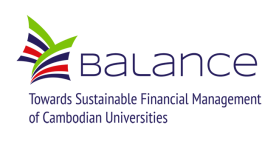 Balance |
Government public expenditure
reduction is one of the many challenges that Cambodian Higher Education System is facing. Explosive
growth in enrollment, difficulties to recruit and retain highly qualified staff and obsolete facilities
also contribute to affect the quality of the education and therefore the increasing of graduate
unemployment or under-employment. BALANCE consortium identified the improvement of the HEIs Financial Management as the key point to target in order to face the above mentioned challenges and satisfy the government demands. Indeed, Financial Management is the cornerstone of institutional management and quality education. The whole project detail: Go to balance-project.eu |
 Erasmus+ Programme, European Union |
On going |
| 9 | 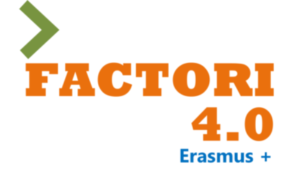 Factori-4.0 |
For these ASIAN countries, the industrial structure of the economy is still at its beginning and is
facing many challenges with their education system. One of them is the lack of expert education with
corresponding skills to work on new technology of automation in processing and manufacturing system.
ASEAN FACTORI 4.0 project is proposed to contribute to this challenge by the design of a set of
industrial automation labs with a corresponding staff training program to initiate the foundation of
center of excellence in automation in each institute, different kinds of pedagogical process will be
implemented to creative a network of competencies among our partner countries following their local needs
and to permit cross learning approach during the project. Through the industrial 4.0 roadmap, the project
is the first step to educate students to prepare a future generation of qualified workers able to
implement advanced manufacturing and processing machinery. RUPP part detail: Go to RUPP part detail The whole project detail: Go to factori-erasmus-project.eu |
 Erasmus+ Programme, European Union |
Completed |
| 10 |
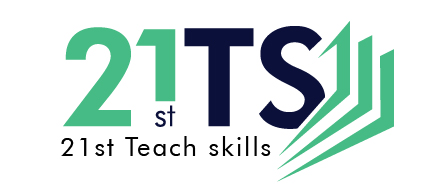 21st century Skills |
21st century Skills Project: Teacher Training with Specialization on life and information
technology skills (21st century TeachSkills)
Effective15-11-2019 and end on 14-11-2022 The educational curriculum seems to not successfully match with the 21st century skills requirements. In order to develop a student-centered learning environment, cover successfully the needs of a growing diverse population of children in China, India and Cambodia with a variety of multi-cultural, multi- linguistics and multi-ability needs and respond to the gap in skills set in the labour market and society, shortage of qualified teachers and poor level of student learning this proposal aims at transferring knowledge, best practices and experience on innovative and ICT-based teaching methodology on 21st skills acquisition from HEIs in Programme Countries to the HEIs of Partner Countries that will be benefitted directly from this project. This project worked under Department Information Technology of Engineering of Faculty Engineering, aims to
Educational Programme: Go to the Educational Programme of 21stTeachSkill |
 Erasmus+ Programme, European Union |
On going |
| 11 |
 SDGs |
SDGs Project: Sustainable Development Goals in Journalism Reporting Effective 15 may
2020 Media is an important stakeholder in regard to societies reaching the goals of development-both as a contributor and a beneficiary. Notwithstanding, the Communication and media studies curriculum in the Asian HEIs seem to not successfully match with the skills required for effective sustainable development reporting in order to delivery the 2030 Agenda. The new courses will respond to the need for modernization of curricula in journalism and media reporting in the PC-HEIs, the need for journalist education with focus on sustainable development as well as the need for strong journalistic and pluralistic media system and the process of sustainable development. The curriculum content is designed to install the skills and level of data literacy necessary to produce both short data stories on a deadline as well as longer in-depth stories that explain underlying development challenges facing the region through data and digital storytelling. By choosing what is in a story, how the story is told, and the diversity of stories, journalists and editors have the capacity to enhance or limit the information people will use to form opinions and make decisions. Specifically, the objective pursued is in department of Media and Communication of Faculty of Social Science and Humanities of RUPP. The whole project detail: Go to Jounalism Reporting Facebook page: Go to Facebook page's Journalism Reporting Telegram group Go to Telegram group |
 Erasmus+ Programme, European Union |
On going |
| 12 |
 ANGEL |
ANGEL Project: ASEAN Network for Green Entrepreneurship and Leadership/ ANGEL Effective :15 Jan
2021 A creation of strong network for green entrepreneurship and transformational leadership can be a catalyst for innovation and development as well as sustainable transformation (EU, ASEAN, UNDP, UNESCO, OECD). ANGEL aims to build the capacity necessary in eleven ASEAN Universities for balancing the high potential economic growth and innovation in the partner countries with their lack of capacities in green entrepreneurship as well as resolving entrenched issues and challenges of poverty, low quality jobs in the informal sector, digital divide and leadership gaps. Its objectives are:
The whole project detail: Go to angel-project.eu |
 Erasmus+ Programme, European Union |
On going |
| 13 |
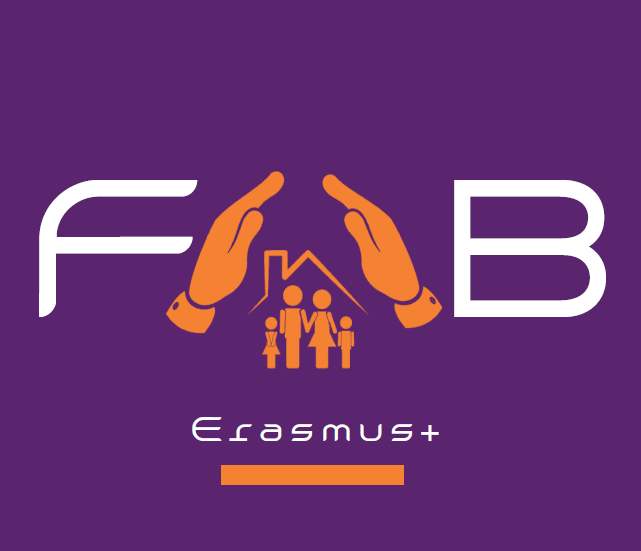 FAB Project |
FAB Project:
The FAB project is an Erasmus+ KA2 Capacity Building in the field of Higher Education that aims to develop a MSc. program in Family Business Administration in order to address the unique challenges that family businesses in Cambodia, Malaysia, Philippines, Bangladesh, Bhutan, Nepal face and hamper their growth and development. The FAB project develops a new master’s degree in Family Business Management supported by a VET professional training course, six centers of excellence that promote cooperation, innovation and career development and a VLE consisting of an Academic Space, a Virtual Library and Massive Online Open Courses. A learning outcomes approach is followed that will reflect the context, scope and content of the programme and will be linked with appropriate learning activities, assessment methods and assessment criteria. The FAB MSc. programme will apply know-how, best practices and processes from European HEIs, namely Portugal, Greece and Cyprus, thus filling the academic gap and addressing the regions business needs and demand for specialised personnel. The whole project detail: Go to https://fab-project.eu/ |
 Erasmus+ Programme, European Union |
On going |
| 14 |
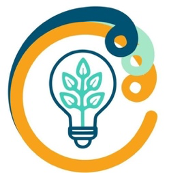 CIRCULAR Project |
CIRCULAR Project: Circular Economy Living Laboratories supporting Social Innovation in Southeast Asia:
CIRUCULAR is a collaborative project of capacity building in Higher Education Institutions to promote research in the field of circular economy in Malaysia, Cambodia and Laos. The project is being implemented jointly by the Universiti Sains Malaysia (USM) – Malaysia, Universiti Malaysia Sarawak (UNIMAS) – Malaysia, Royal University of Phnom Penh (RUPP) – Cambodia, Svay Rieng University (SRU) – Cambodia, National University of Laos (NUOL) – Laos, Savannakhet University (SKU)- Laos, Universidad De Almeria (UAL) – Spain, Instituto Politecnico De Coimbra (IPC) – Portugal, and International Consulting and Mobility Agency Sociedad De Responsabilidad Limitada (INCOMA) – Spain. The project is funded by European Union under the ERASMUS-EDU-2022-CBHE-STRAND-2 over three years period from 2023 to 2025. For Cambodia activities, the project is coordinated by MSc in Climate Change Program (MCC), Graduate School of Science, Royal University of Phnom Penh. The project goal is to boost the social innovation ecosystem in Malaysia, Cambodia and Laos by bringing together and reinforcing the links between Teaching, Research, Innovation and Society in order to collaboratively design and test innovative solutions to mitigate waste management problems, promote circular economy approaches and improve the quality of life of local communities, supported by a socially engaged student body that is committed to environmental sustainability. In order to achieve the above goal, the specific objectives of this project try to: SO #1 - Design a new collaborative model for reinforcing Higher Education Institutions’ third mission and for enhancing effective and successful Knowledge Square cooperation for social innovation with a specific focus on the topic of circular economy. SO #2 - Enhance community-based participatory research and citizen science at the same time promoting a new pedagogical framework for embedding community engagement actions as part of Higher Education study programmes. SO #3 - Set-up Living Labs as open innovation ecosystems that integrate education, research, development and innovation, and regional development to help trigger the adoption of green and more sustainable practices and a more efficient use of resources. SO #4 - Build the capacities of academics to design, organise and implement collaborative social innovation programmes that promote students’ active citizenship and simultaneously contribute to solve everyday sustainability and climate- change problems, based on innovative and tailored pedagogical methodologies. SO #5 - Build the capacities of researchers on new methodologies and updated strategies to conduct community-based research activities on the topic of circular economy and waste management following the highest research practices through Living Labs. SO #6 - Empower students and young people to become socially-engaged, climate-conscious and active citizens by developing their knowledge, skills, values and attitudes to become models in promoting behavioural change in what concerns their individual preferences, consumption habits and lifestyles supporting environmental sustainability. SO #7 - Raise the awareness of students, young people and members of local communities on the topic of circular economy and sustainable development, and promote alternative consumption habits and waste management practices underpinned by knowledge, research and innovation generated by HEIs. For more details of project: https://circularproject.org/ |
 Erasmus+ Programme, European Union |
On going |
